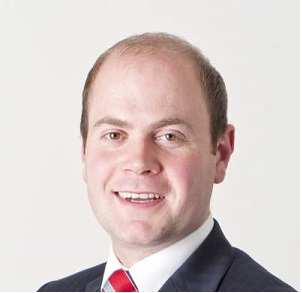UK BUS SUMMIT 2020 | 6TH FEBRUARY | LONDON
Cllr Liam Robinson, Transport Portfolio Holder, Liverpool City Region Combined Authority
The role of buses in achieving zero emission and clean growth
Next week's UK Bus Summit is the premier bus event covering all parts of the UK. Held right at the heart of Westminster to elevate the importance of bus at the centre of local and national decision making, the event allows the opportunity to compare and contrast bus policy throughout England, Scotland, Wales and Northern Ireland.
This year there will be particular focus about the wider social, economic and environmental benefits of bus. Cllr Liam Robinson will be speaking in the second session of the day focusing on the role of the bus in achieving clean growth and net zero emission.
To hear more about the above and much more, book your place now to attend on the 6th February.
The role of buses in achieving zero emission and clean growth
The last few years has seen increasing global recognition for the climate change crisis that is facing our planet, with much discussion about what we can do to reduce CO2 emissions and stop the devastation being to the environment caused across the world.
Here in the Liverpool City Region our Metro Mayor, Steve Rotheram, declared a climate emergency at the annual meeting of the Combined Authority in May 2019, a recognition of the need for action.
We believe that buses are a key part of the solution to zero emission and clean growth – it's vital that we have long-term plans for our bus networks to move to zero emission.
Initially, the challenge we face is to increase the usage of buses and reduce private vehicle use. The Liverpool City Region has set out our Vision for Bus to do this and we have already seen growth through the work we have done in our Bus Alliance, bringing an increase in patronage over the last four years - with a much better value fare offer for under 19's at its heart that has seen Young person's journeys across the region grow by 168%.
Through the Bus Alliance, we have highlighted the benefits of travelling by bus with our "Better by Bus" campaigns over the last few years. The most recent campaign is focusing on how travelling by bus, rather than private car, can make a big difference to the environment. This has been done by pointing out facts such as how a double-decker bus can take up to 75 private cars off the road, alongside images of animals whose habitats are at risk due to global warming.
As a Combined Authority, we've recognised that there is a strong benefit to using funding to prioritise bus services. For instance, we've recently announced plans to invest in Green Bus Routes, which will see improvements delivered on a number of key commuter corridors in the city region.
Alongside this, we've introduced priority measures for buses at traffic lights and the roll-out of contactless payment across the whole city region network - all part of our push to make travelling by bus a more appealing option.
Increasing patronage is just part of the process. Moving people across from their car to buses is all well and good, but unless we work to move bus fleets away from old polluting diesel engines to cleaner, zero emission options, the impact will be limited. While retrofitting to make engines cleaner provides interim relief, it should not be seen as the long-term solution.
Government, national and local, need to do more - but we can't do it on our own. Working together with bus operators and manufacturers is vital.
City regions need to have long-term targets to transition their fleets. The Liverpool City's vision is for a zero-emission fleet by 2035. To do this we all, from the Combined Authority to operators, will need to step up to the plate but crucially this will need clarity from the bus manufacturers as to how they are going to rise to the challenge we are facing.
One of the possible solutions is the use of hydrogen buses. In the Liverpool City Region, we are leading the way in trialling hydrogen as a zero emission option, investing money and working together with local hydrogen producers and our bus operators to make the technology work.
There are a number of challenges we need to face in moving towards providing a cleaner, greener bus network but by working together, we can achieve our targets and play our part in battling the climate emergency that the world is facing.

Cllr Liam Robinson, Transport Portfolio Holder, Liverpool City Region Combined Authority



